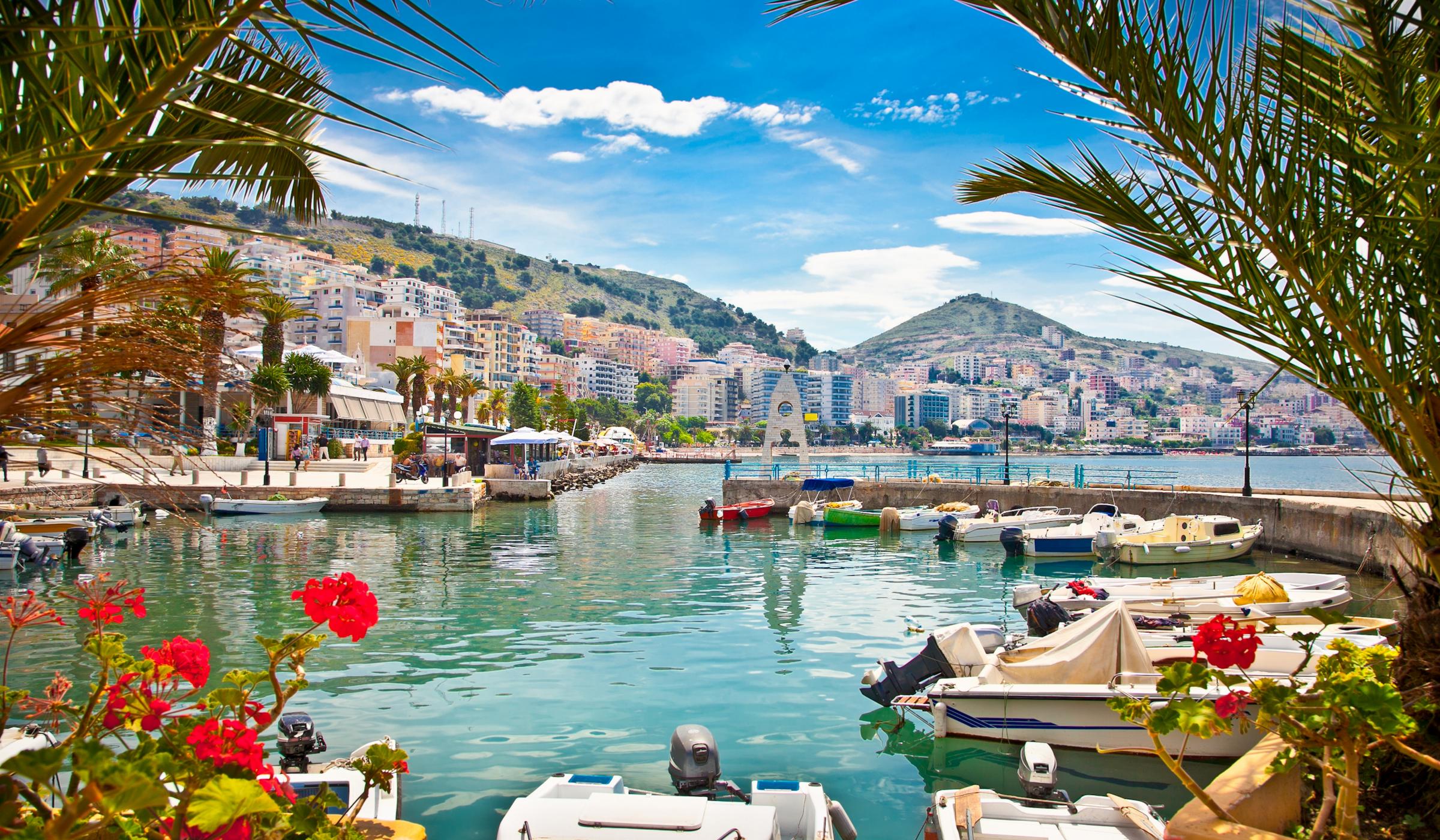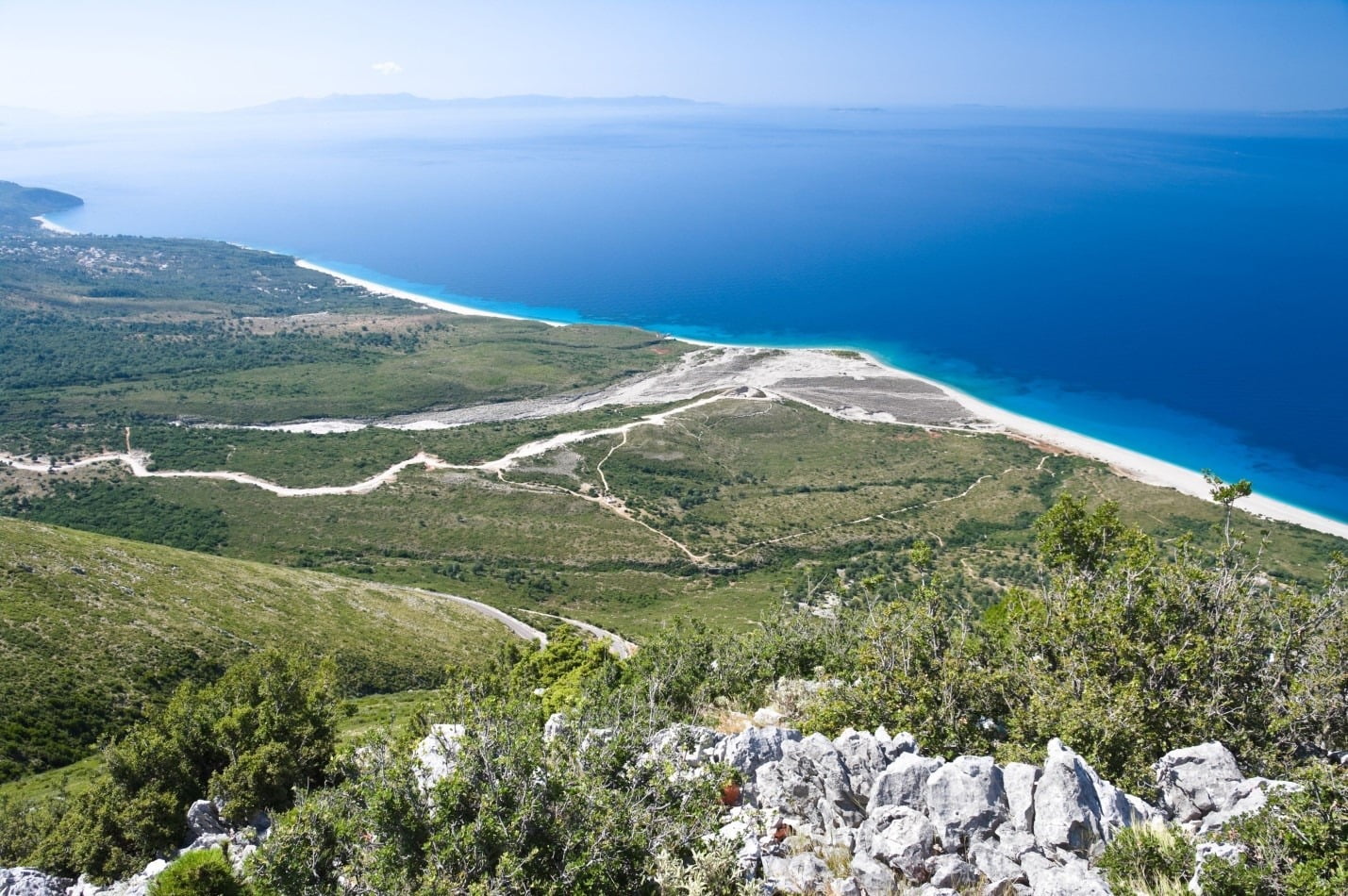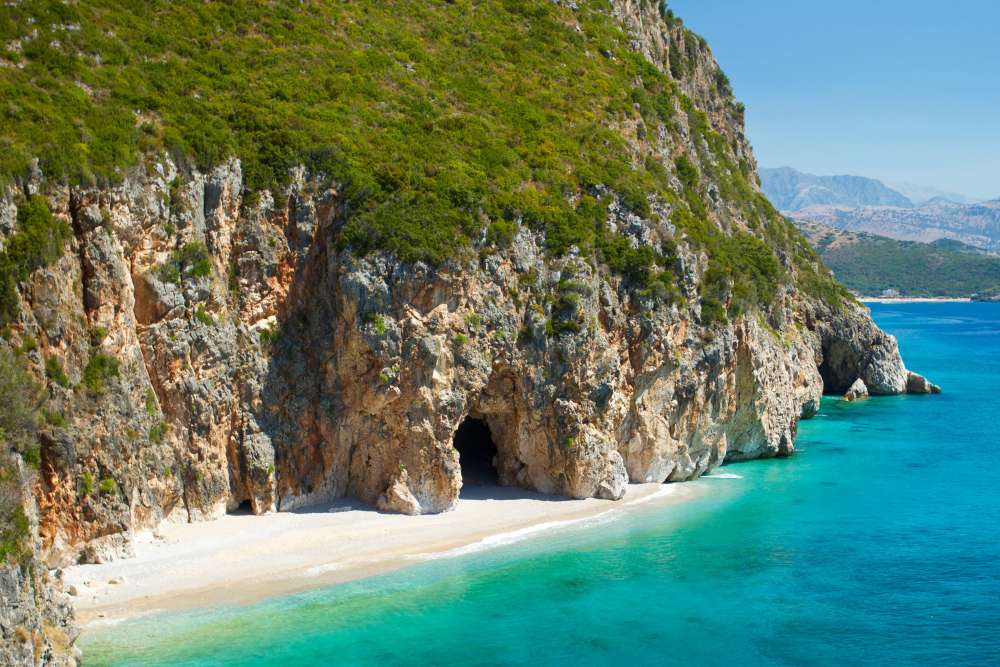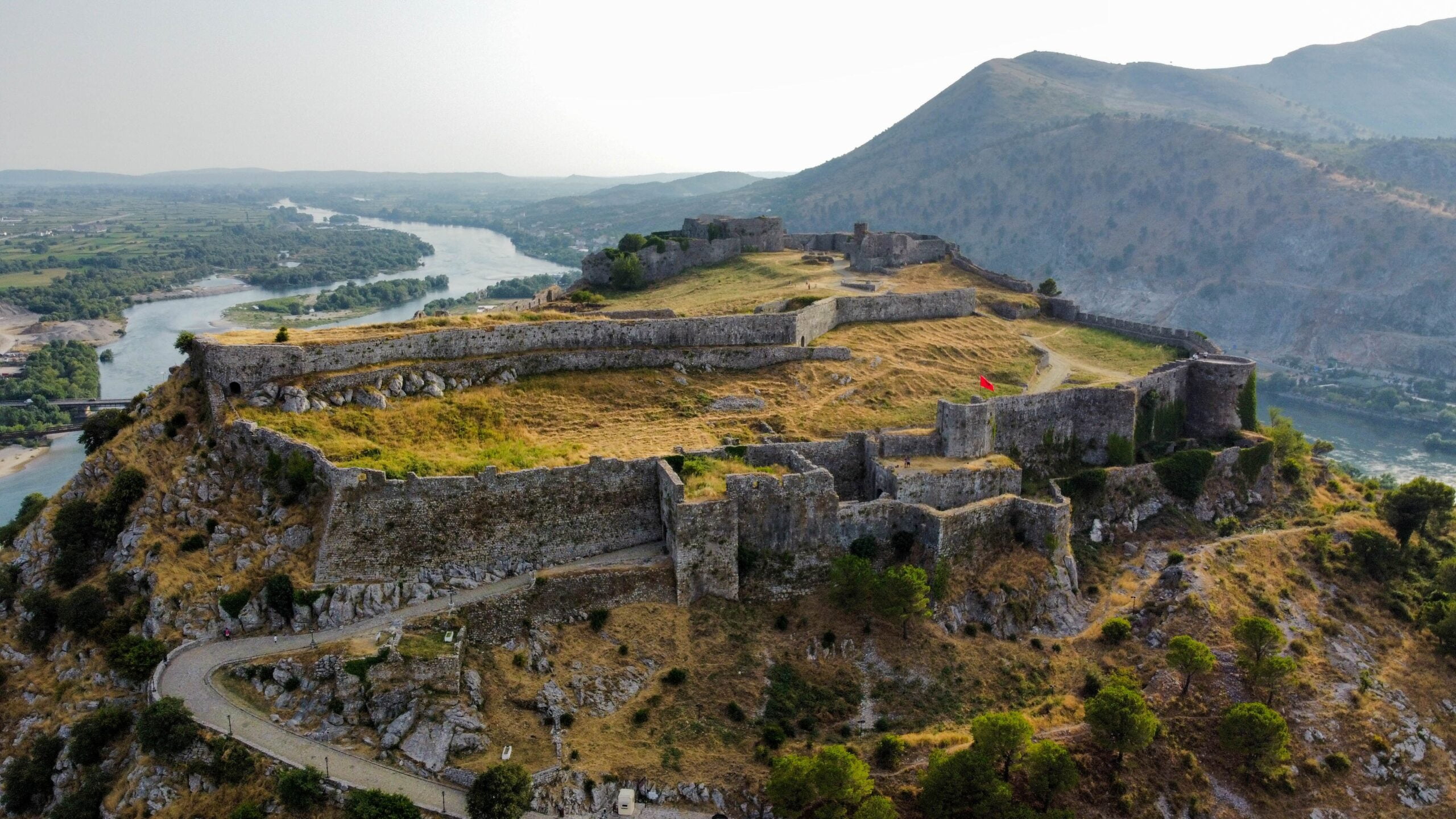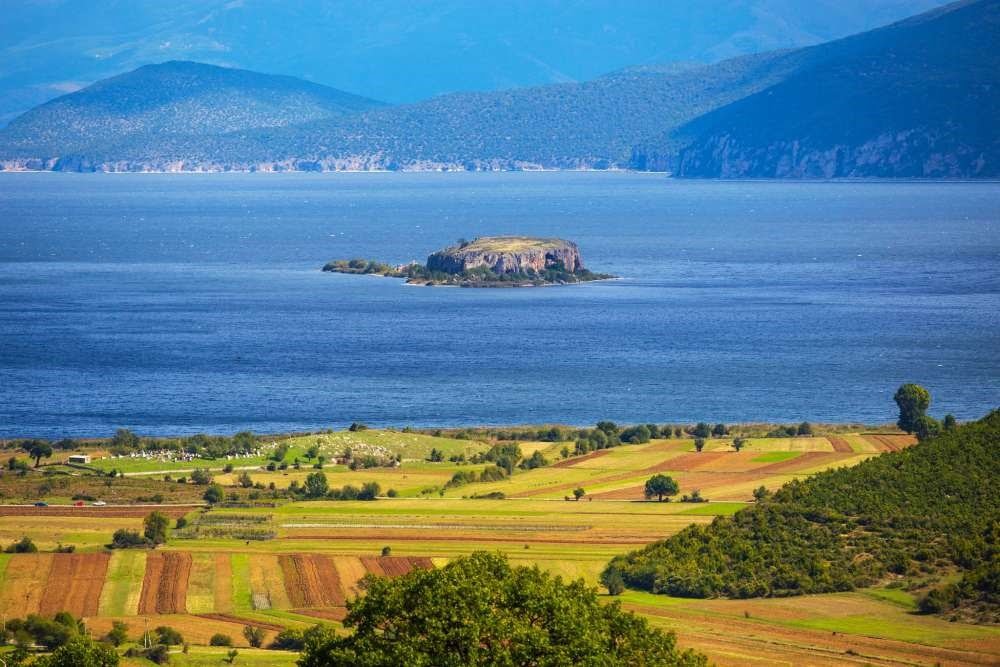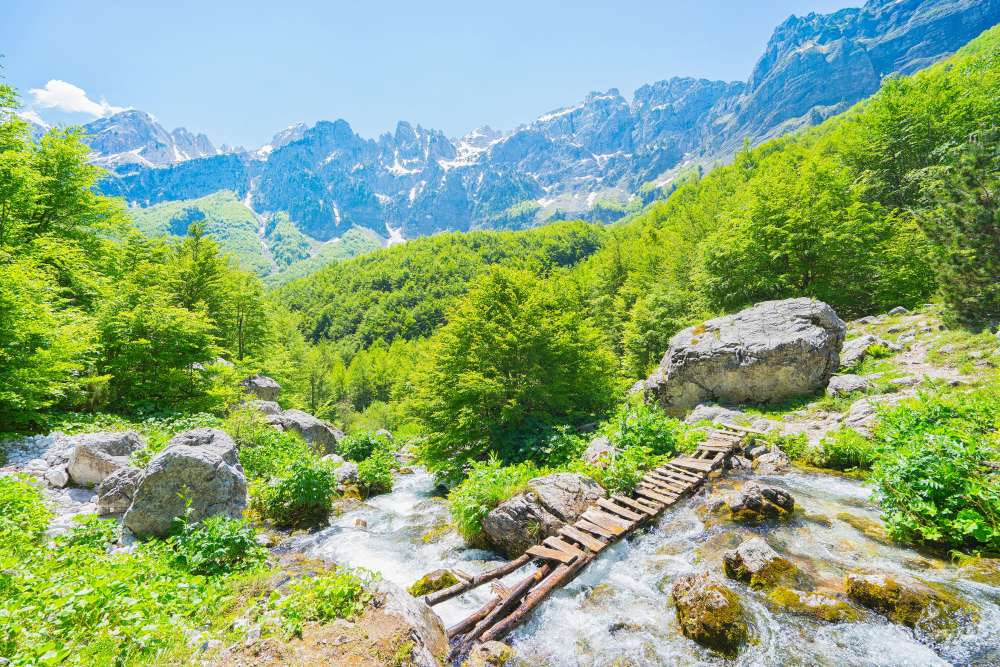If you are moving to Europe, and climate, cost of living, safety, and long-term potential are important considerations for you, then Albania should be on your list.
Across the Adriatic from Italy, Albania is a 2-hour flight from anywhere in Europe and easy to reach by air, sea, and land.
Who is Albania for?
Albania offers versatile living standards from budget-friendly to luxury. It provides a balanced lifestyle for both relaxation and adventure. The country experiences mild winters, hot summers, and brief heavy rainfall in late autumn. For snow enthusiasts, mountainous regions provide the perfect getaway.
Tirana, the modern capital, allows easy exploration of Albania’s diverse landscapes, from mountains to beautiful coastlines.
Albania, primarily Muslim but secular, celebrates various religious holidays. While not a prominent LGBTQ destination, it lacks aggressive hostility towards the community.
As an EU candidate since 2020, Albania joined the Council of Europe and NATO in 1995 and 2009 respectively. Its currency, the LEK, is stable yet facilitates a cost-effective lifestyle.
General Information
Albania has a population of around 2.88 million people, with an average of 113 people per square meter. The population is predominantly young and vibrant. The most densely populated regions are near the capital Tirana, the port of Durrës, and the western lowlands. Albania is known for its relatively homogeneous population, with minorities comprising about 3 percent. The largest minority group is the Greek minority, mainly located in the southern provinces. Other minorities include Macedonians, Montenegrins, and Roma. Major urban centers like Tirana, Durrës, Elbasan, Shkodra, Vlora, and Korça have the highest population concentrations. Additionally, cities such as Berat, Gjirokastra, Saranda, Kruja, and Pogradec hold significance for tourism.
The official language is Albanian. It constitutes a unique and original branch of Indo-European family. The Albanian language is an ancestor of the Illyrian language and it is one of the oldest languages spoken in the European continent. Its vocabulary contains words from other languages such as Persian ,Turkish, Greek, Latin and Slavic languages, but it has preserved its originality as an unique language. The Albanian language is recognized for its two distinct dialects, which are: “Gheg” and “Tosk”. The Shkumbin River, which divides the country into two almost equal parts, is the natural border of these two dialects. Gheg is spoken in the north, while Tosk is spoken in the south. The Albanian alphabet has 36 letters.
Albania’s official currency is the Lek (ALL), divided into 100 qindarka (no longer produced). The economy is rapidly improving, with significant contributions from agriculture and a growing tourism industry. The country relies heavily on imports and has recently discovered oil and gas reserves. The history of the Lek dates back to 1926, with various editions and denominations introduced over the years. Special issues of the currency have been released, including commemorative notes for significant events like the anniversary of the capital city, Tirana.
Albania experiences a Mediterranean climate, with distinct seasons offering pleasant weather. The coast has a Central Mediterranean climate, featuring mild, wet winters and hot, dry summers. Alpine areas have a Central Continental climate, characterized by cold, snowy winters and temperate summers. Lowlands have mild winters (around 7°C) and average summer temperatures of 24°C. Lowland rainfall ranges from 1,000 mm to over 1,500 mm annually, with more precipitation in the north. Around 95% of rainfall occurs in winter, particularly in mountainous regions. Despite the rain, Albania enjoys abundant sunshine, ranking second only to Spain in Europe for average annual sunny days. The climate is overall pleasant, ideal for outdoor activities.
Albania embraces diverse religious communities including Sunni Muslims, Orthodox Christians, Catholic Christians, and Bektashi Muslims. Islam has followers nationwide, while Catholics are concentrated in the north, Orthodox Christians in the south and center, and Bektashis in specific regions like Skrapar, Krujë, Elbasan, Mat, Mallakastër, and Korçë. The Albanian Constitution guarantees freedom of religion, encompassing various faiths such as Baha’is, Christian Evangelicals, and Jehovah’s Witnesses. Atheists and non-religious individuals also coexist. Albania’s religious landscape took a unique turn in 1967, as all religious activities were banned, resulting in the closure of churches, mosques, religious schools, and tekkes. For approximately 23 years, Albania stood as the world’s sole atheist country. However, in 1990, a democratic movement ushered in the restoration of religious freedom, leading to the reconstruction of churches, mosques, and other religious structures.
When it comes to air travel, Albania offers one major airport located in Tirana, known as Nënë Tereza. This airport provides direct flights from various European cities, Israel, and Turkey. However, if you are traveling from another continent, you will likely need to have a layover in a major European city before reaching Tirana.
Currently, there are no direct flights available from North America, South America, Africa, or Australia to Albania. For those coming from the Americas, the closest option is to fly first to London, Frankfurt, Rome, etc.
The majority of flights to Nënë Tereza originate from Italy, with connections available from around 20 different cities. German cities rank second in terms of flight frequency.
Prominent airlines that operate flights to Nënë Tereza include British Airways, Lufthansa, Turkish Airlines, and ITA, Fly Dubai, etc. For travelers seeking low-cost options, Wizzair offers flights from Budapest, London, and Dortmund.
Another airport named Kukës is set to open in 2020, primarily catering to low-cost carriers.
Transportation from Tirana city to Nënë Tereza airport is relatively straightforward. One option is to take the shuttle known as Rinas Express from the city center. Alternatively, you can opt for a taxi ride. The bus ticket costs around 2€, while the approximate taxi fare is 18€. It is important to look for the ATEx sign on taxis, as they are the only approved taxi company serving the airport.
Reaching Albania by ferry is a popular choice for many travelers.
The majority of ferries depart from Italy and arrive at Durrës, Vlorë, or Sarandë. Some ferries also operate from Greece.
To reach Durrës, ferries depart from Ancona, Bari, and Trieste. If you prefer to go to Brindisi, you can catch a ferry to Vlorë or Sarandë.
There is also a ferry connection available between Sarandë and Corfu in Greece.
Well-known Italian ferry operators serving these routes include Adria Ferries, Adriatica di Navigazione, Azzurra Line, Venezia Lines, and Ilion Lines.
For those planning to travel from Greece to Albania, Sarris and Ionian Seaways are worth considering.
Ferry prices vary based on factors such as the number of passengers, whether you are bringing a vehicle, and the time of year.
Emergency Contacts
Click icon to make the call.
